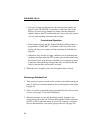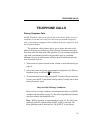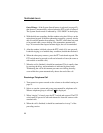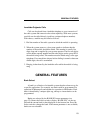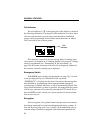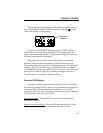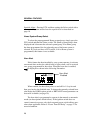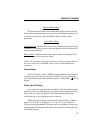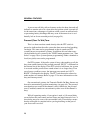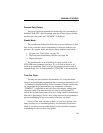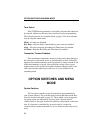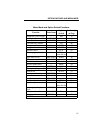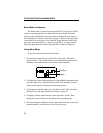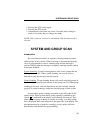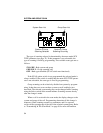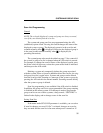
GENERAL FEATURES
28
A power turn-off delay allows features such as the horn alert and call
indicator to remain active for a time after the ignition switch is turned off.
At the same time, advantages of ignition switch control are utilized such
as preventing battery discharge that may occur if the transceiver is acci-
dentally left on for an extended period (see page 54).
Proceed (Clear-To-Talk) Tone
This is a short tone that sounds shortly after the PTT switch is
pressed to indicate that the radio system has been accessed and speaking
can begin. This tone can be programmed so that it sounds on LTR
systems but not conventional systems. In addition, this and other tones
can be disabled on all systems by the TONES menu parameter (see “Tone
Select” on page 30) or system operator programming. Either a standard or
loud (two-pitch) tone can be programmed.
On LTR systems, if the radio system is busy when making a call, the
busy tone sounds instead of the proceed tone and “BUSY” is indicated on
the bottom line of the display. If the PTT switch is held down, the system
is accessed and the proceed tone sounds when it is no longer busy. If an
out-of-range condition occurs, the intercept tone sounds and “OUT-
RNGE” is indicated in the display. The PTT switch must be released to
make another call attempt. Refer to page 47 for more information on the
busy and intercept tones.
On conventional systems, the Transmit Disable On Busy feature can
be used to automatically perform monitoring (see page 44). The proceed
tone then does not sound if the channel is busy. Otherwise, the proceed
tone (if enabled) sounds on conventional systems even if the channel is
busy.
With all operating modes, if encryption is used, a 0.9-second delay
occurs before this tone sounds and two beeps are heard instead of one. A
short delay may also occur with conventional calls. These delays ensure
that the radio path is complete before you begin talking so that part of
your first word is not lost.



